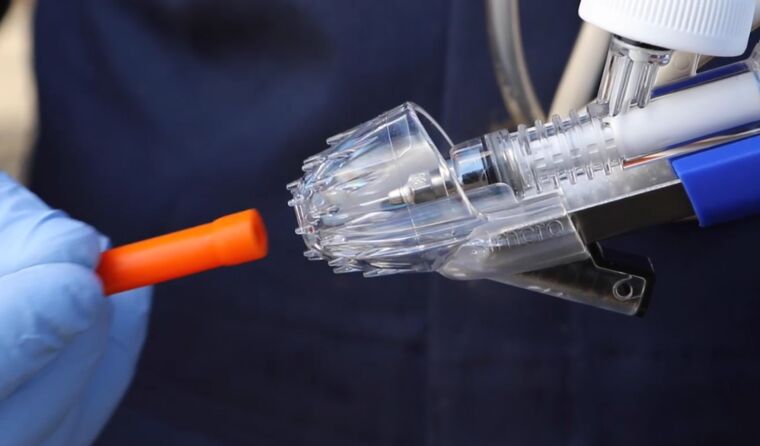
Article republished from RACGP – What GPs need to know about accidental livestock vaccine injury.
Gudair and Silirum are vaccines that provide protection against Johne’s disease, an incurable and terminal wasting disease of livestock caused by the bacteria Mycobacterium paratuberculosis.
While safe for sheep, goats (Gudair) and cattle (Silirum), there are potential consequences associated with accidental human injection.
Even when a small amount of these vaccines is accidentally injected into a human, intense swelling and a persistent granulomatous inflammatory reaction can occur.
Reactions to the vaccine are particularly serious if injected into a finger joint or tendon sheath. With the latter, the product may track along the tendon and the swelling and inflammation post injection may compromise blood supply and result in necrosis, which in rare cases can lead to the loss of a digit.
What is in Gudair and Silirum?
These vaccines contain:
- inactivated Mycobacterium paratuberculosis organisms
- mineral oil
- thiomersal (preservative)
The oil-based vaccine typically forms a depot at the injection site, acting as a potent adjuvant, stimulating a cell-mediated immune response to the mycobacteria. The action of the adjuvant and antigen combination in this vaccine produces a reaction similar to that elicited by Freund’s complete adjuvant.
Common recommendations given by healthcare professionals post exposure
After any human injection or adverse reaction with Gudair or Silirum, the patient should immediately stop vaccinating and cease working until the severity of the exposure is properly assessed.
Zoetis is aware of the following treatment strategies that have been recommended by doctors in the past:
Superficial skin exposure, eye exposure and oral ingestion
- Skin contact: wash the contaminated area with warm soapy water. If irritation develops and persists, or if the patient is concerned, seek medical attention
- Eye splash: remove contact lens and irrigate eyes thoroughly with saline solution for at least 15 minutes and promptly seek medical attention
- Oral ingestion: rinse the mouth out with cool water. If irritation develops, the patient feels unwell or if they are concerned, seek medical attention
Needle-stick and needle scratch injuries without known injection of vaccine
Doctors have recommended that the wound be allowed to bleed freely and advise not to squeeze or interfere with the wound. They have also recommended that the wound then be cleaned thoroughly with warm water and then kept clean and dry.
- Doctors have also considered that, following appropriate immediate local cleansing, corticosteroids may decrease the severity of any local reaction
- Doctors have frequently determined the patient’s tetanus immunisation status and administered a booster or primary series, as appropriate
- Commonly, if there is no pain or swelling 24 hours post exposure, doctors have continued to monitor for at least a month and have treated any clinical symptoms that arise accordingly
If pain and swelling is present after 24 hours, it should be considered that it is a case of accidental or self-injection and the injury should be treated as described below.
Suspected injection of vaccine
In cases of accidental or self-injection, needle stick, needle scratch or contamination of an open wound where there is suspected introduction of vaccine into the body, doctors have considered that prompt surgical attention may be required and, in those cases, the doctors have:
- incised the wound to remove the vaccine, especially where there is involvement of finger pulp or tendon
- in the case of a lesion that has progressed to necrosis or granulomatous ulceration, surgeons have performed surgical debridement to remove residual vaccine material.
Surgeons have stated that meticulous technique has been required to stop inadvertent spread of the product during surgery.
Given the nature of this Freund’s-like vaccine, Zoetis recommends that any healthcare professional speak with a surgeon who has experience with the treatment of cases of accidental or self-injection of either vaccine to ensure the appropriate treatment is advised.
If presented with a case of accidental or self-injection with, or adverse reaction to, Gudair or Silirum, healthcare professionals are advised to contact Zoetis on 1800 814 883.
Visit the RACGP website here: RACGP – newsGP
For more information about needlestick injuries, read our factsheet here: Farmer Needlestick Injuries – Risk & Recommended Treatment | National Centre for Farmer Health
|
|